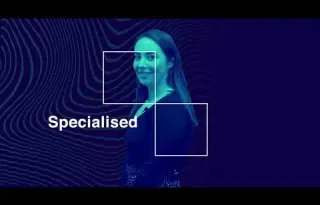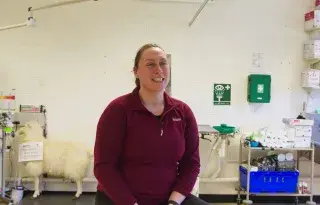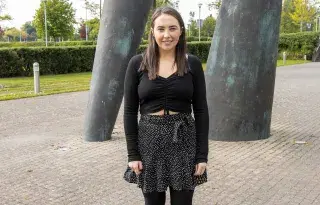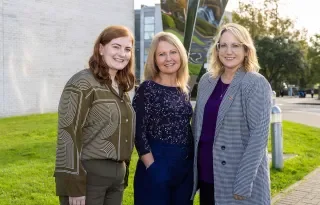MSc / Postgraduate Diploma in Agricultural Biotechnology

Search to find a different course
Register your interest here
Course Overview
Successful MSc graduates will have a deep knowledge, understanding and experience of the use and potential of biotechnology in agriculture, including animal genetics, nutrition and health, crop and feed production, genetic engineering, sustainable food and energy production, bioinformatics and bioremediation.
Graduates will be familiar with all aspects of policy and legislation in relation to this field and will be able to appraise the ethical, social, biosafety and policy implications of existing and emerging technologies. They will be competent in all the relevant data acquisition and numeric methods and have advanced research and communication skills.
Find out more by viewing our Postgraduate webinar video for this course
What makes this course different
Only course specialising in Agricultural Biotechnology in Ireland
Delivered by experienced researchers and industry professionals at the cutting edge of Agricultural Biotechnology research and development.
Career Opportunities
There are many employment prospects for graduates of these programmes, with past graduates obtaining employment in a variety of sectors. Possible positions of employment include:
- Research positions within Teagasc, Dept. of Agriculture, Fisheries and Food or 3rd level institutions;
- Auditors or inspectors in the Agri-Food sector;
- Quality Management / Quality Assurance roles in the Agri-Food industry;
- Scientists/laboratory analysts;
- Food product development scientists.
Course Delivery and Modules
The MSc course is available in full-time mode (2 days per week) or part-time mode (1 day per week over 2 years), followed by the research project.
The Postgraduate Diploma in Agricultural Biotechnology is also available in full-time (2 days per week) mode or part-time mode (1 day per week over 2 years).
The course involves a blend of classroom and practical hands-on activities. Learning and teaching methods will include lectures, tutorials, master classes, group discussions, laboratory practicals, industrial and farm visits, computational analysis and both individual and group project work.
Education Progression
Graduates of this Programme will be able to progress to level 10 research programmes, both in DkIT and other organisations.
Within the Centre for Freshwater and Environmental Studies in DkIT, graduates may avail of Level 9 and 10 research opportunities in the areas of organic waste management and bioenergy.
Fees and Funding
- Postgraduate Diploma in Agricultural Biotechnology €5,100 – payable in two stages.
- MSc in Agricultural Biotechnology €7,650 – payable in two stages
- Non EU Fees (Full Time) MSc in Agricultural Biotechnology €12,000
- You may be eligible for financial support for this course through the Student Universal Support Ireland (SUSI) system. Find out more
Fees
Entry requirements
- Entrants should have a minimum of a 2nd class honours degree in Agriculture, Agricultural Science, Environmental Science, Biotechnology, Food Science or a related area.
- Applicants who do not meet these requirements but have relevant work experience may be assessed for entry in line with the DkIT RPL Policy and Procedures.
- International students must have a minimum level of English equivalent to IELTS 6.5. Candidates may be interviewed.
How to apply
Apply Directly to DkIT
Apply directly to DkIT using our online applications system. Please remember to upload the required documentation (copies of your existing qualification(s), your CV, any other support documents etc) with your online application to expedite your application. To avoid disappointment early registration is recommended.
International Application (non-EU)
International Applicants (not from or living in the EU) can apply through an agent or directly to DkIT to study this course.
Ask us a Question
If you have a question about the MSc / Postgraduate Diploma in Agricultural Biotechnology please ask it below and we will get back to you.
Disclaimer: All module titles are subject to change and for indicative purposes only. All courses are delivered subject to demand and timetables are subject to change. Elective Module options will only run subject to student numbers. The relevant Department will determine the viability of each elective module option proceeding depending on the number of students who choose that option. Students will be offered alternative elective modules on their programme should their preferred elective option not be proceeding. Award Options for Common Entry Programmes: The relevant Department will determine the viability of each award option proceeding depending on the number of students who choose either option. If the numbers for one of the Award options exceed available places, students for this option will be selected based on Academic Merit (highest grades).


